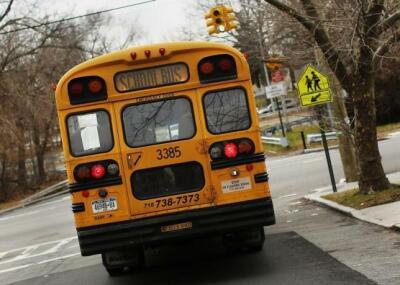Christians can still help public schools despite growing secularism
Many Christians are worried about the growing secularism in society, but an author talks about how they can still impact public schools.

"Whether promoting the ideas of the sexual revolution, strange bathroom policies, censoring Christmas from plays, violence, falling test scores or removing the Bible from libraries — I get it. It's easy to be outraged," said John Stonestreet, president of The Chuck Colson Center for Christian Worldview, in an article on CNS News. "But outrage isn't a strategy."
Stonestreet, co-author of "Restoring All Things: God's Audacious Plan to Change the World Through Everyday People" along with Jim Daly and Warren Cole Smith, said that Christians need to ask four key questions in order to help them respond to society.
Applicable in different areas of society, these questions about culture are: one, what is good in it that Christians can promote, protect, and celebrate; two, what's missing that they can contribute creatively; three, what's evil that they can stop; and four, what's broken that can be restored.
In the public school setting, he cites examples of what Christians can do. For question #2, he said that Christians can help raise awareness on the religious freedom of both students and educators by initiating campaigns. A Biblical worldview can also be integrated into academic subjects, such as art, music, history, and social studies. Also, for question #1, he said Christians should support Christian teachers and others in the line of education. Almost half of the country's public eductors, according to a 2014 report by Barna Group, are practicing Christians, and Stonestreet says they should be celebrated.
The same article by Barna says that 95 percent of Protestant pastors and more than 80 percent of churchgoing Christians believe that Christians ought to get involved in helping public schools. Thirty-six percent of respondents believe that encouraging teachers can help, 25 percent are for supporting other education options, 24 percent believe in volunteering, 24 percent think that working for a national education reform is needed, 22 percent are for working with the local school board for changes, and 19 percent think it's helping in fund-raising projects.
Meanwhile, 65 percent of those who regularly volunteer at public schools are church-goers.
However, there are reasons why Christians don't or are not able to help, including 44 percent who don't have kids in public schols, 18 percent who believe that the public institutions don't want help from religious individuals, 17 percent who don't know how to extend a hand, while 9 percent said public school culture goes against their religious belief.
 Christians don't have to affirm transgenderism, but they can’t express that view at work: tribunal
Christians don't have to affirm transgenderism, but they can’t express that view at work: tribunal Archaeology discovery: Medieval Christian prayer beads found on Holy Island
Archaeology discovery: Medieval Christian prayer beads found on Holy Island Presbyterian Church in America votes to leave National Association of Evangelicals
Presbyterian Church in America votes to leave National Association of Evangelicals Over 50 killed in 'vile and satanic' attack at Nigerian church on Pentecost Sunday
Over 50 killed in 'vile and satanic' attack at Nigerian church on Pentecost Sunday Ukrainian Orthodox Church severs ties with Moscow over Patriarch Kirill's support for Putin's war
Ukrainian Orthodox Church severs ties with Moscow over Patriarch Kirill's support for Putin's war Islamic State kills 20 Nigerian Christians as revenge for US airstrike
Islamic State kills 20 Nigerian Christians as revenge for US airstrike Man who served 33 years in prison for murder leads inmates to Christ
Man who served 33 years in prison for murder leads inmates to Christ


 Nigerian student beaten to death, body burned over ‘blasphemous’ WhatsApp message
Nigerian student beaten to death, body burned over ‘blasphemous’ WhatsApp message 'A new low': World reacts after Hong Kong arrests 90-year-old Cardinal Joseph Zen
'A new low': World reacts after Hong Kong arrests 90-year-old Cardinal Joseph Zen Iran sentences Christian man to 10 years in prison for hosting house church worship gathering
Iran sentences Christian man to 10 years in prison for hosting house church worship gathering French Guyana: Pastor shot dead, church set on fire after meeting delegation of Evangelicals
French Guyana: Pastor shot dead, church set on fire after meeting delegation of Evangelicals ‘Talking Jesus’ report finds only 6% of UK adults identify as practicing Christians
‘Talking Jesus’ report finds only 6% of UK adults identify as practicing Christians Mission Eurasia ministry center blown up in Ukraine, hundreds of Bibles destroyed: 'God will provide'
Mission Eurasia ministry center blown up in Ukraine, hundreds of Bibles destroyed: 'God will provide' Church holds service for first time after ISIS desecrated it 8 years ago
Church holds service for first time after ISIS desecrated it 8 years ago Burger King apologizes for 'offensive campaign' using Jesus' words at the Last Supper
Burger King apologizes for 'offensive campaign' using Jesus' words at the Last Supper Uganda: Muslims abduct teacher, burn him inside mosque for praying in Christ’s name
Uganda: Muslims abduct teacher, burn him inside mosque for praying in Christ’s name